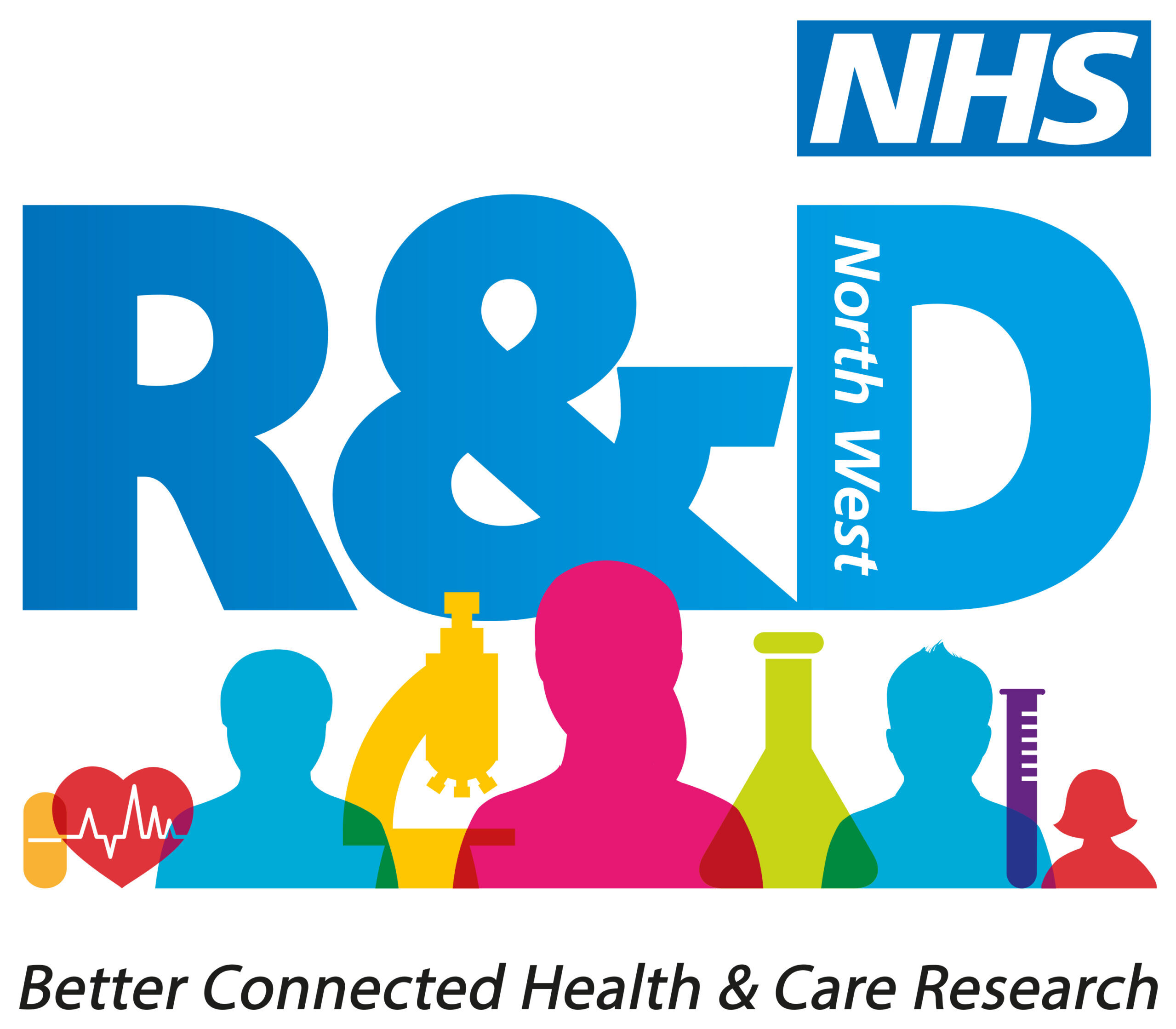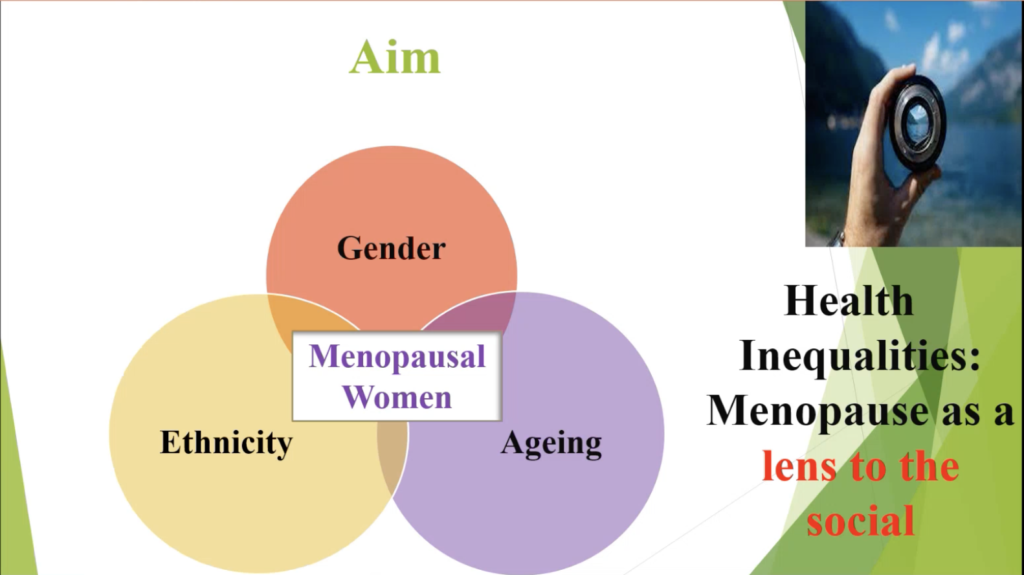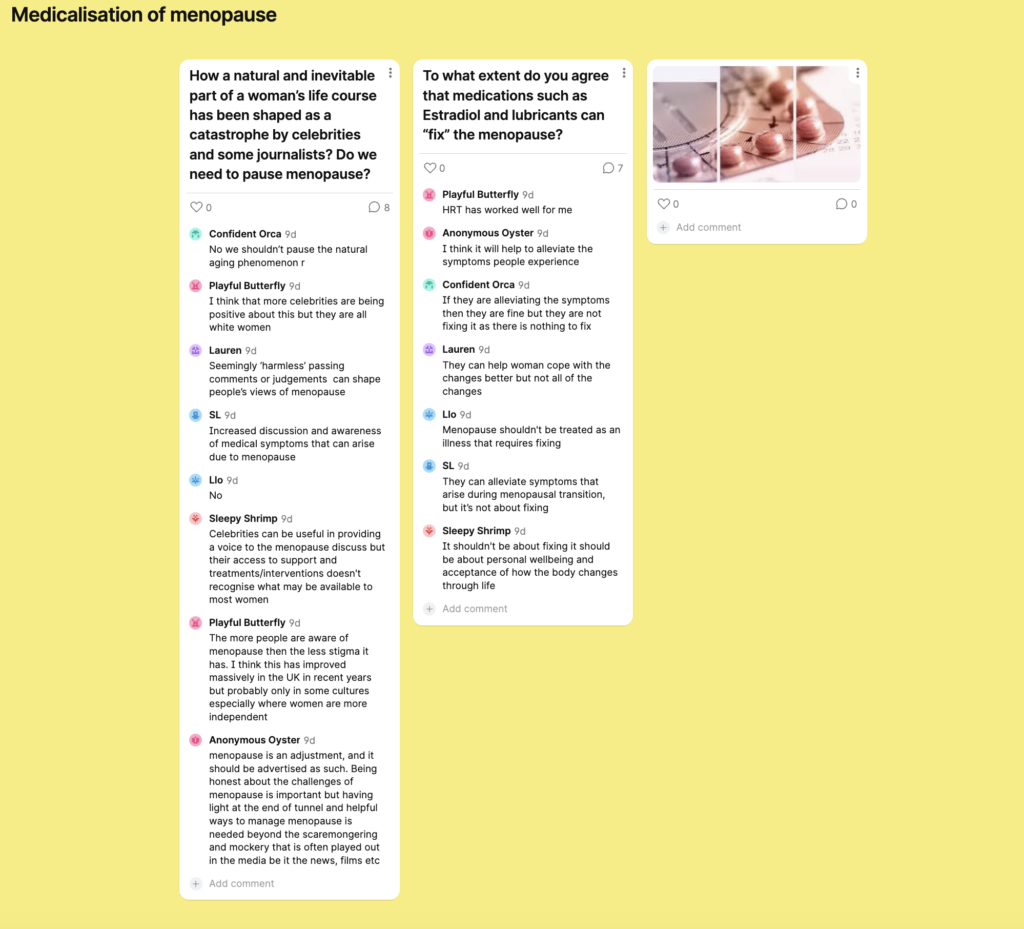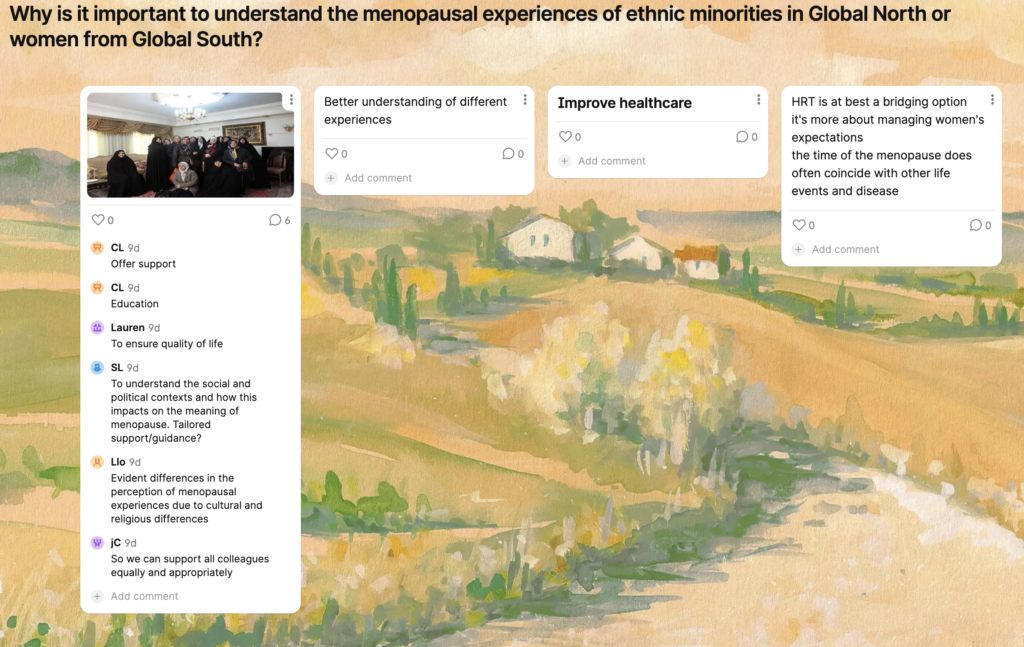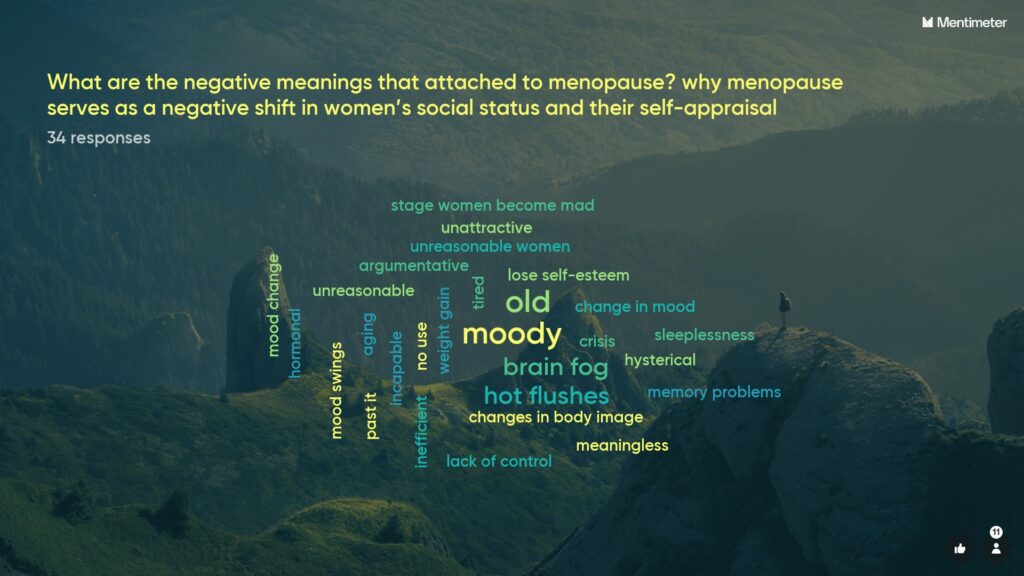On 23rd October 2024, Dr Elham Amini in “Reframing Menopause: Challenging Stereotypes and Shaping Understanding”, part of the Provocations Seminar Series 2 hosted by NHS R&D North West in collaboration with the University of Liverpool, explored the often misunderstood and under-researched subject of menopause. Dr Elham Amini, who has an academic background in sociology and midwifery, guided the discussion towards a more holistic understanding of menopause.
Dr Elham Amini’s Expertise and Research
Dr Amini’s expertise lies at the intersection of medical sociology, gender studies, and women’s health. With a background in midwifery and sociology, her work delves into the gendered and sexual experiences of Iranian Muslim menopausal women, focusing on how menopause intersects with ageing, body, gender and sexuality. Her research sheds light on how the medicalisation of menopause and sociocultural structure of society shape women’s understanding of their bodies and menopausal experiences and the ways they respond to social expectations.
Dr Amini completed her PhD in Sociology of Health and Gender at Durham University in 2017, following two Master’s degrees in Women’s Studies from Alzahra University in Tehran and Sociology and Social Research Methods from Durham University. She has taught at Durham University and Lincoln University before her current role.
Menopause: A Broader Perspective
The seminar explored how menopause is often medicalised, with treatments like Hormone Replacement Therapy (HRT) becoming the focus. However, Dr Amini emphasised that menopause must be understood as a gendered, embodied and cultural experience, particularly among women from ethnic minority groups. Her research focuses on the experiences of Iranian Muslim menopausal women, highlighting how social, cultural, and familial expectations shape their understanding of menopause. Menopause is the focus of Dr Amini’s research. “Not just as a biological and hormonal phenomenon , but the meaning for individuals and society and how this shapes menopausal experiences.
In many cultures, menopause is linked to feelings of shame, guilt, and inadequacy. Dr Amini shared narratives of women who hid their menopause from their husbands, fearing abandonment due to the perception that they were no longer fulfilling their marital duties. These stories reflect how deeply embedded social norms influence women’s experiences of this natural stage of life, often turning it into a source of fear and isolation.
The Role of Culture and Ethnicity
Dr Amini’s research also underscored the lack of attention given to the experiences of ethnic minorities, particularly in the UK. For example, there is a surprising absence of research on how Chinese or black women in the UK experience menopause. This gap leaves healthcare providers unequipped to address the specific challenges faced by these communities. Moreover, these circumstances may create barriers for women from ethnic minority backgrounds in accessing healthcare services and seeking professional advice, potentially leading to increased dissatisfaction with their healthcare experiences
Dr Amini argued that menopause cannot be understood purely through a biological lens, as cultural factors play a significant role in shaping how women perceive and experience it.
The session also revealed how menopause is stigmatised across different cultures. In her work with Iranian women, Dr Amini found that menopause was often viewed as a “dysfunctional” state that marked the end of a woman’s sexual and reproductive usefulness, further entrenching the taboo surrounding it.
The Importance of Men’s Involvement
Another important point raised during the seminar was the need to involve men in conversations about menopause. A notable anecdote shared by Dr Amini involved a male Uber driver who confused menopause with menstruation, reflecting the widespread ignorance that persists. Engaging men in these discussions is essential for breaking down misconceptions and reducing the stigma surrounding menopause, especially in the workplace.
Reframing Menopause as Empowerment
One of the most powerful reframing offered in the seminar compared the post-menopausal role of women to that of female whales, who, after menopause, become the leaders of their pods. This analogy was used to challenge the narrative that menopause diminishes a woman’s value. Instead, it can be viewed as a period of empowerment, where wisdom and life experience come to the forefront.
The seminar concluded with a call to reframe menopause as a stage of leadership and personal growth, moving away from the narrative of decline.
Furthermore, the participants called for earlier education about menopause, suggesting that it be incorporated into school curriculums as part of sex education. Doing so would normalise conversations around menopause and help younger generations prepare for this stage of life. Additionally, compulsory menopause awareness training in workplaces could help managers and employees alike navigate this often-overlooked life phase.
Overall the discussions around menopause emphasised the need for a broader, more inclusive approach that recognises cultural differences and the social pressures women face. Dr Amini’s research offers a vital contribution to this field, urging us to reconsider how we view and support women during menopause, both medically and socially. By shifting the narrative, we can empower women to embrace this stage of life with confidence and dignity.
We are conscious that our provocation seminars only just scratch the surface of these important topics and are very much the start of a conversation.
With that in mind, we will be running a follow-up discussion with the researchers from the University of Liverpool to explore some of the ideas that came out of the provocation in more depth. We have called these “re-action learning” sessions – drawing on action-learning principles to create an opportunity to extend the conversation in a direction that matters to you and with a focus on identifying ways in which we might work together to drive changes to healthcare practices, policies and/or new research collaborations.
If you would be interested in taking part in this session, please contact Kate Bulpin at katebulpin@outlook.com.
The Provocations Seminar Series
The Provocations Seminar Series continues to provide valuable insights into underexplored areas of health and wellbeing. Join us in the next seminar “Identifying and Mitigating Racialised Microaggressions in Health and Care: Building Equity and Empathy” Led by Professor Lilian Otaye-Ebede, a leading academic in Human Resource Management and Organisational Behaviour at the University of Liverpool.
The session will focus on two studies examining the lived experiences of Black and Minority Ethnic (BME) employees in the NHS, who make up over 20% of the workforce but continue to face discrimination, harassment, microaggressions, and inequalities at work. These negative experiences affect their well-being, job performance, and the quality of patient care they provide. The session aims to raise awareness of these challenges and explore how colleagues, managers, and leaders can mitigate them by becoming allies and improving the working conditions of BME employees. Participants will develop ‘Reflective Competencies’ to help foster positive change and support BME staff in the NHS.
